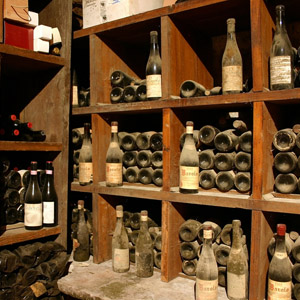Something I get asked very often is ‘How long can I keep this wine for?’ usually meaning ‘will this wine improve with age?’ Knowing when to eat stuff is easy because of sell-by dates and ‘Best before’ labels, but it’s much harder to tell with a wine.
Sometimes the winemaker has tried to help by saying on the back label, “Drink within the next 3-5 years” by which he or she means ‘within 3-5 years of vintage’, but even that isn’t always true.
I was reminded of this question at the RE:CM 10 Year Old Wine Awards event last week which involved a tasting of 70+ 2003 red wines with a view to seeing how they had aged. For the most part, the wines entered had done well – two thirds were defined as ‘above average’ – with the winning three wines achieving 5 and 4.5*.
The competition was organised by Christian Eedes and the three winners – Boekenhoutskloof Syrah, Rudera Syrah and Remhoogte Estate – were all served at the dinner and were all delicious.
The aim of the tasting was to identify those wines that had really matured with benefit. ‘Ultimately we were looking to ascertain whether South African wine is age-worthy as opposed to just age-able’ said Christian.
‘We were looking for wines that weren’t just a bit mellower with slightly softer tannins, but wines that were starting to show an extra level of complexity by virtue of having spent 10 years in a bottle.’
What suggests a wine is a ‘keeper’?
There are four ingredients which will preserve a wine:
• Tannin – the dry sensation you get in your mouth from a strong cup of tea or a red wine
• Sugar – some of the longest-lived wines are dessert wines
• Alcohol – this preserves wine in the same way it preserves medical specimens!
• Acidity – less of a factor than the others but helps keep a wine fresh.
And none of these will make the wine worth keeping unless there is sufficient fruit and flavour to start with. The best rule of thumb as to whether a wine will mature well is price – don’t expect your R30 bottle to improve at all with keeping, whereas if you splash out R150+, you should hopefully have some concentration and intensity for your money.
A few tips
• If you can afford it and you have good storage, then the best way to mature wine is to buy a case of it. Drink one bottle fairly early on – perhaps within the shortest time recommended by the winemaker – and then continue to try one more bottle at regular intervals of 6 months to a year. When you decide it can’t get any better – drink the rest of the case!
• Look for a track record more than a good vintage – current vintages of the 3 wines above would be a good start, as would recent winners of Museum Class Wines from the Old Mutual Trophy Wine Show.
• Make sure you like older wines before you start ageing them! As a wine ages, it loses its upfront fruit and starts developing secondary flavours such as Marmite, savoury, wet wool and beeswax. If you like it fresh and fruity, ageing may not be for you.
• Get advice. Buying from good wine merchants such as Wine Cellar, Wine Concepts, Norman Goodfellows or Caroline’s increases the knowledge available to you and reduces the risk of buying something duff.
• Don’t expect to make money from wine. Wine as an investment is high-risk to say the least as fashions change, critics make and break wines and bottles simply don’t always develop as expected. Be prepared to drink all your wine yourself so follow the words of William Morris “Do not have anything in your house that you don’t know to be useful or believe to be beautiful.”

